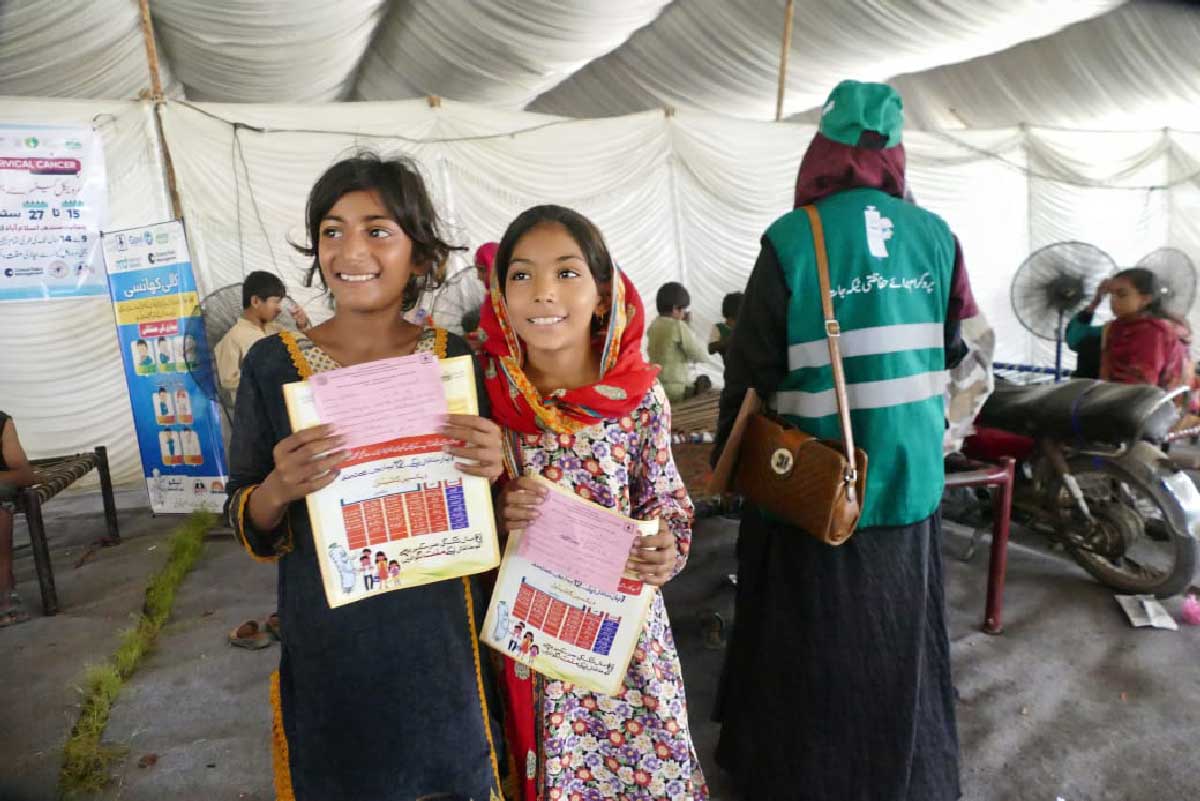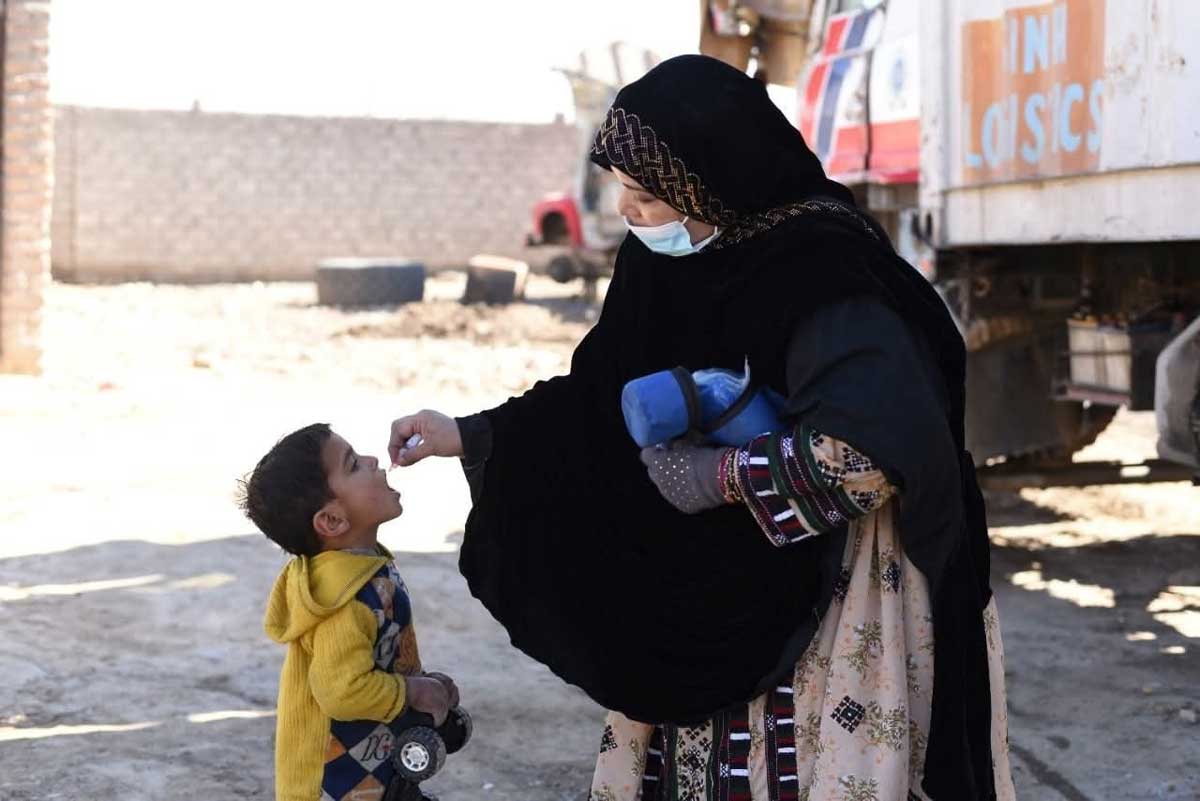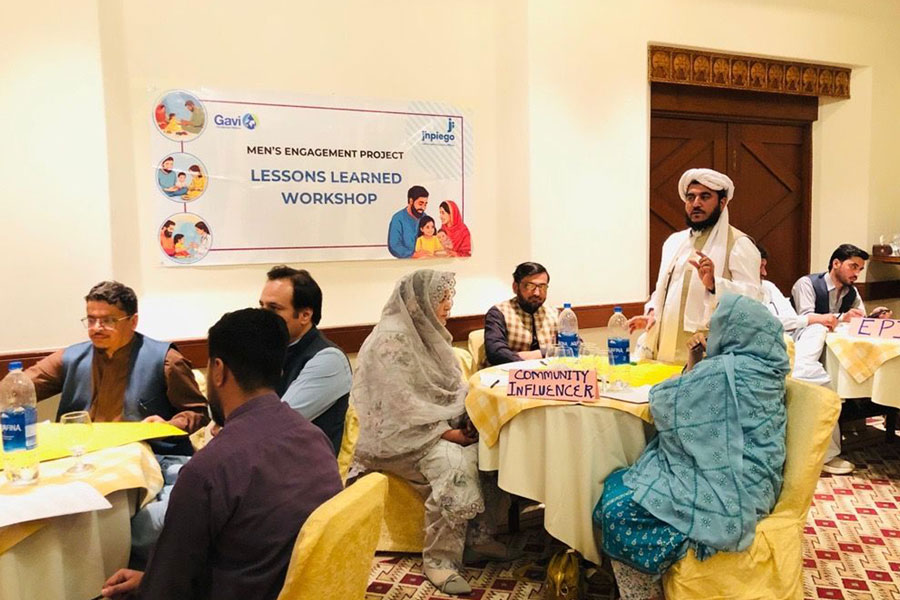In northwestern Pakistan, religious leaders convert the vaccine-hesitant
At a recent ulema conference in Khyber Pakhtunkhwa, 190 renowned Islamic scholars pledged their support for immunisation. Adeel Saeed talked to several of them about the transformative effect they’ve been able to have on community attitudes.
- 25 September 2024
- 6 min read
- by Adeel Saeed
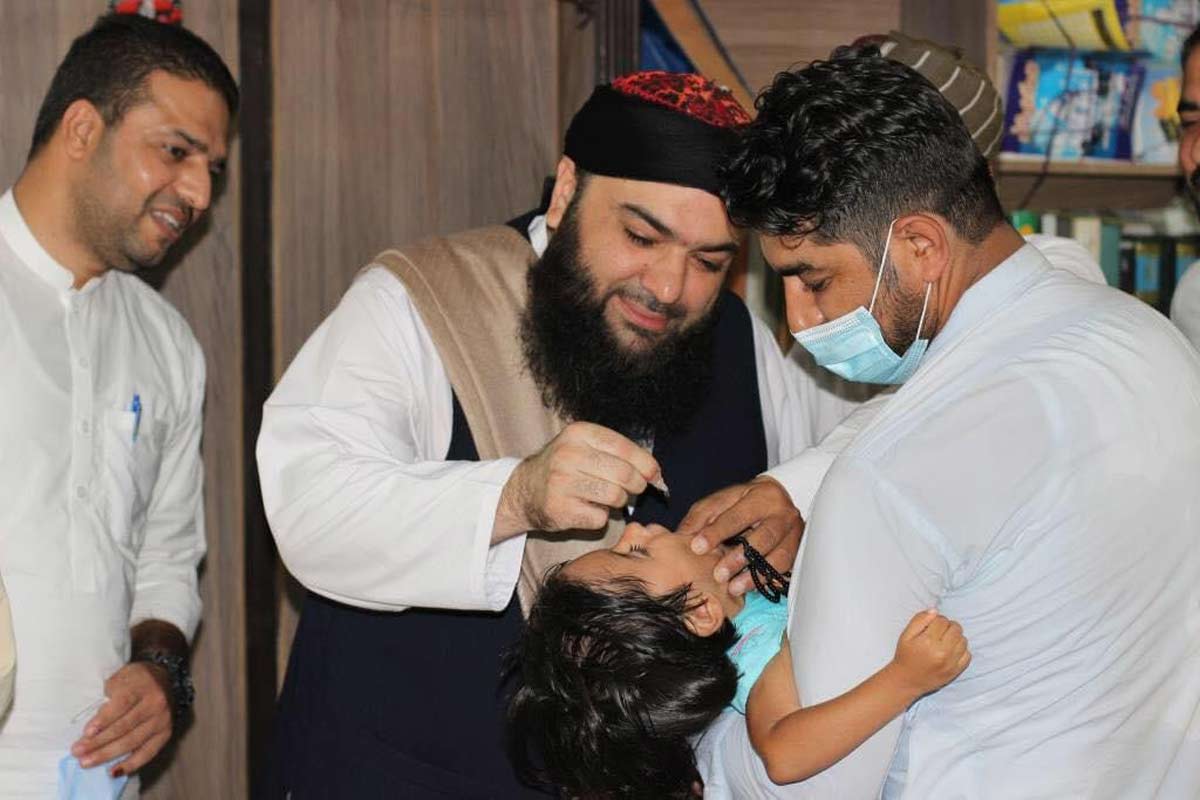
Bazidkhel Union Council, which lies on the periphery of Peshawar city in northwestern Pakistan, had a reputation among health workers: parents here, vaccinators say, exhibited a repugnance for vaccination, and were more likely than not to refuse polio drops for their children.
Pakistan is one of just two countries left in the world where polio remains endemic. Low vaccine coverage made Bazidkhel UC a prospective hideout for the virus – potentially, the cradle of a new outbreak.
Neither the district administration’s assurances of launching development schemes for the area nor warnings of strict action over violation of public order changed minds.
But when the local health system enlisted the help of a religious scholar, attitudes began to shift rapidly. In what vaccinators called a “surprising” achievement, Bazidkhel UC went from being a so-called “highest refusal reporting area” to a “vaccination-accepting locality”.
“The role played by religious scholars in vaccine acceptance will be written with golden words in history because of the bravery and courage they exhibited in reaching out to staunch refusals at a time when polio teams were under severe attack by militants.”
- Maulana Syed Yousaf Shah of Daral Uloom Akhora Khattak
Debunking years-old misconceptions
Maulana Tayyab Qureshi, a smiling, comfortable-looking man, is the district khateeb, or prayer leader, for Peshawar. Not long ago, he sat down with community elders of Bazidkhel and delivered an hour-long oration, highlighting the religious onus on parents to ensure the better health of their children, and busting certain faith-based misconceptions – for instance, myths concerning haram vaccine ingredients.
He is plainly gratified by the outcome of his intervention. “The area is cleared with almost zero refusals, as people are not showing any resistance to vaccinators who visit for administering of vaccines to children for 12 perilous diseases, including the debilitating polio virus,” the Maulana told VaccinesWork.
At time of his visit to area, the situation was very tense there, he recalled. Unrest bubbled, as some so-called “vaccine-refusers” were adamant over their religious stance. “I took the risk with an objective in mind that it’s my responsibility to remove religion-based misconceptions that can affect the well-being of our minors and coming generations,” Maulana Tayyab said.
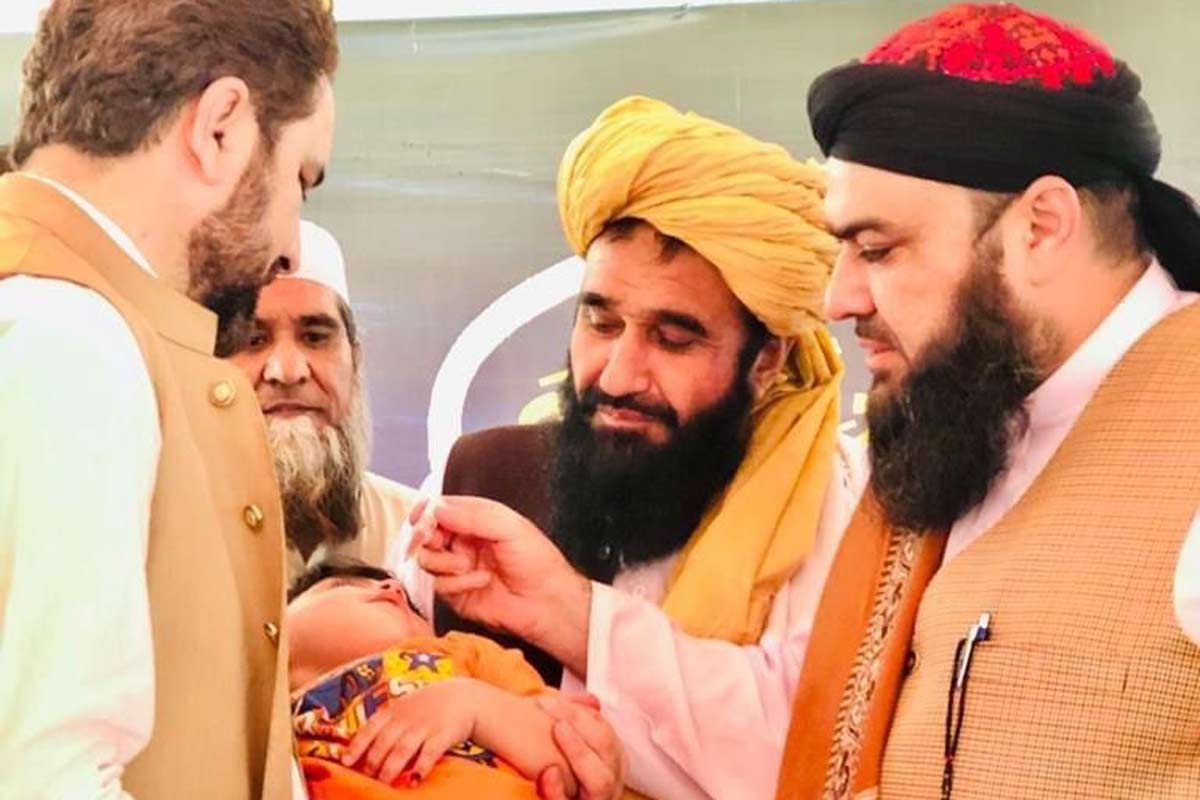
A conversion experience
Middle-aged Malik Adeel Awan, a resident of Gul Bahar in Peshawar, says he used to be a resolute refuser of immunisation – but encounters with a spiritual leader he respected changed that.
“Mufti Abdul Jamil Mansoori visited me several times, and succeeded in convincing me to allow delivering of polio drops to my two children,” Awan told VaccinesWork.
His children had, by then, missed several doses of vaccines, despite his spouse’s urgent entreaties to let them be immunised.
“Mufti Jamil’s intervention changed my stance, and turned me from a strong opponent to an advocate of polio vaccination who now welcomes health teams in his locality and [helps] ensure every child is inoculated in the area,” Awan said.
25,000 faith-linked “refusals” plummet to just 219
“Spiritual personalities have played very important role in the promotion of vaccine acceptance in a region where thousands of refusals were reported on religious grounds,” said Shahid Khattak, Focal Point for Religious Support Persons (RSPs), a World Health Organization (WHO) programme.
“In 2015 we had around 25,000 religious refusals to polio vaccines, which reduced to 4,942 in 2019 and now we have just 219, thanks to the support and cooperation of religious personalities,” he told VaccinesWork.
Immunisation programme staff classify refusals into three categories: religious, misconception-based and demand-based. The religious refusals are considered the toughest variety to tackle, and that job is left up to Islamic scholars, Khattak explained.
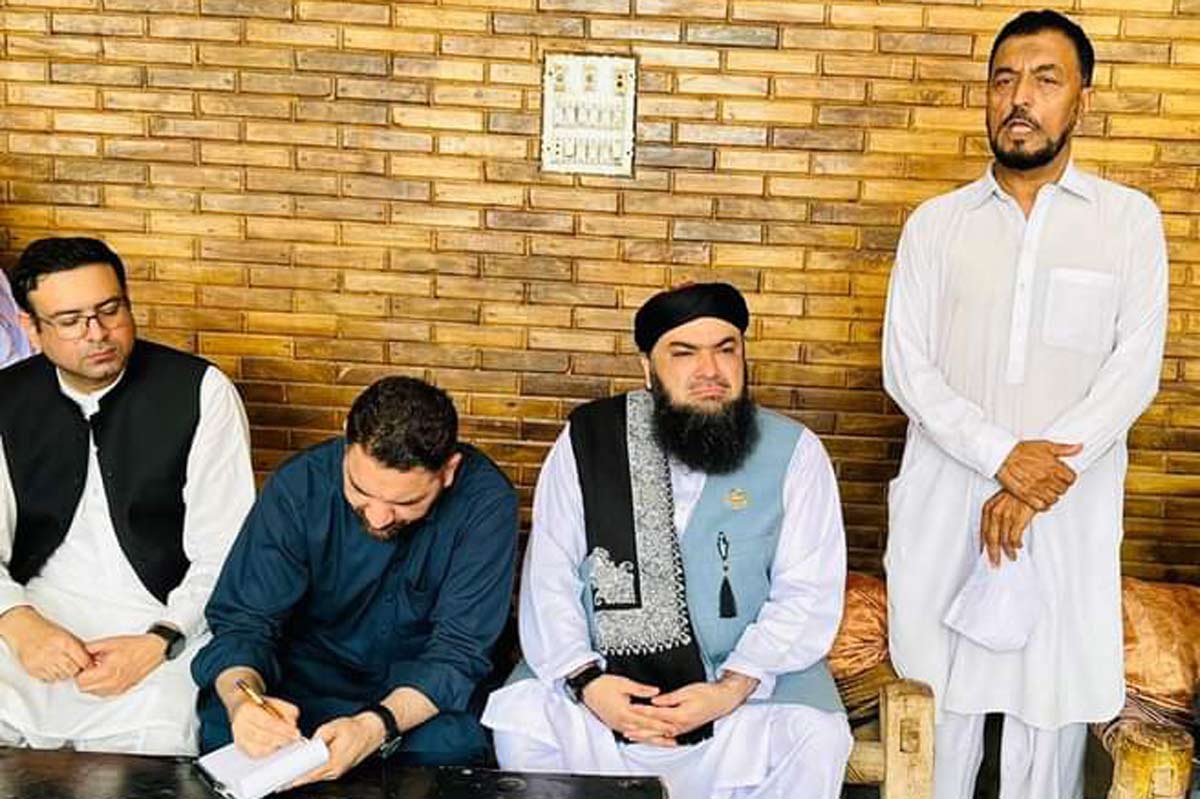
The RSP programme was launched in February 2015 as a replication of a global initiative run by the Islamic Advisory Group in Polio Eradication, WHO officials informed VaccinesWork.
Today, the initiative includes more than 1,000 religious scholars, who are engaged on voluntary basis, and provided a token monthly stipend of 15,000 rupees (about US$ 54).
Fighting polio in Khyber Pakhtunkhwa
Today, 650 of the total nationwide tally of RSPs are working in Khyber Pakhtunkhwa, the province of which Peshawar is the capital.
According to data from National Emergency Operation Center, Khyber Pakhtunkhwa qualifies as the most polio-affected part of Pakistan. Out of a total of 1021 polio cases recorded across Pakistan in the past 14 years, 643 have come either from Khyber Pakhtunkhwa or from the Federally Administered Tribal Areas (FATA), which were merged with Khyber Pakhtunkhwa in 2018.
Khyber Pakhtunkhwa’s RSPs convey public health messages during their Friday sermons, and even go to the homes of refusing parents to educate them about the importance of vaccines to prevent different diseases, Shahid said.
Their advocacy extends beyond polio. During the COVID-19 campaign, RSPs recorded 17,000 videos to allay vaccine hesitancy among the people. They’ve also taken up dengue prevention as a cause: some 1,300 religious scholar-made videos are circulating on social media for mass awareness of the vector-borne virus.
More recently, Friday sermons have included messaging about the prevention of mpox, after Khyber Pakhtunkhwa’s first patient was confirmed in early September.
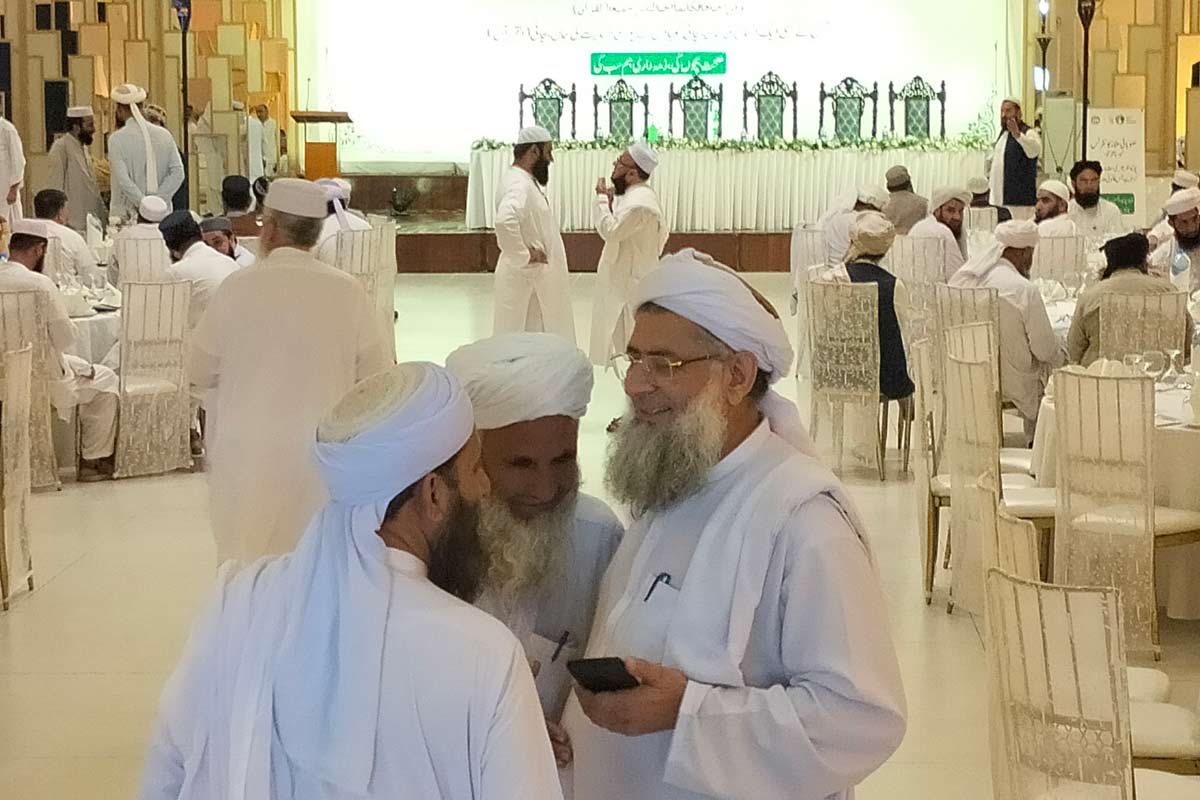
Polio: a national – and Islamic – cause
But polio remains a cornerstone of the scholars’ efforts. “Pakistan and Afghanistan are the only two countries in world where the crippling disease is still endemic and it is our national responsibility to support polio eradication endeavours because healthy nation is prerequisite for development of country,” said Maulana Hafeez Jalandhari, Central Ameer (President) of the National Islamic Advisory Group (NIAG).
He numbers among the many public-facing religious campaigners against the disease. In one video message broadcast on news channels four years ago, Maulana Hafeez Jalandhari can be seen facing the camera from behind his desk as he avers that polio drops are essential for safety of children, and urges parents to disregard propaganda against vaccination.
“In Islam, much emphasis is being given on prevention [over] treatment, and vaccination is part of prevention of child from becoming ill,” says Mufti Fazle Jamil Rizvi of Tanzeem-ul-Madaris Ahl-e-Sunnat, Pakistan.
They have not taken up their public stances lightly. Said Maulana Syed Yousaf Shah of Daral Uloom Akhora Khattak, “The role played by religious scholars in vaccine acceptance will be written with golden words in history because of the bravery and courage they exhibited in reaching out to staunch refusals at a time when polio teams were under severe attack by militants.”
The late head of the Daral-ul-Uloom Akhora Khattak, Maulana Sami-ul-Haq, was the first religious scholar who invited polio teams into his seminary, and administered drops for restoring confidence of people in vaccination, Yousaf Shah told VaccinesWork. He has not been the last.
Have you read?
Unwavering support for immunisation
In a first-if-its kind ulema conference, held in Khyber Pakhtunkhwa on 5 September 2024, more than 190 renowned religious scholars declared their complete and unwavering support for immunisation and polio vaccination for the better health of children, and for protection from lifelong disabilities.
During the conference, the religious scholars also signed a joint declaration endorsing that polio vaccines contain no harmful ingredients, and that their use is fully permissible under Islamic principles to protect individuals from the debilitating disease of polio.
“Religious scholars’ interventions played a very active role in promoting vaccine acceptance by dispelling myths and misconceptions,” said Sahibzada Muhammad Adnan Qadri, Minister for Religious Affairs, Khyber Pakhtunkhwa.
The religious leaders have a unique form of contact with people at community level, he added.
“Religious scholars enjoy highest level of respect in our society, and due to their influence people are accepting the message that they should not feel hesitancy in vaccination of their children,” commented Abdul Basit, Special Secretary Health and Coordinator Emergency Operation Center (EOC).

